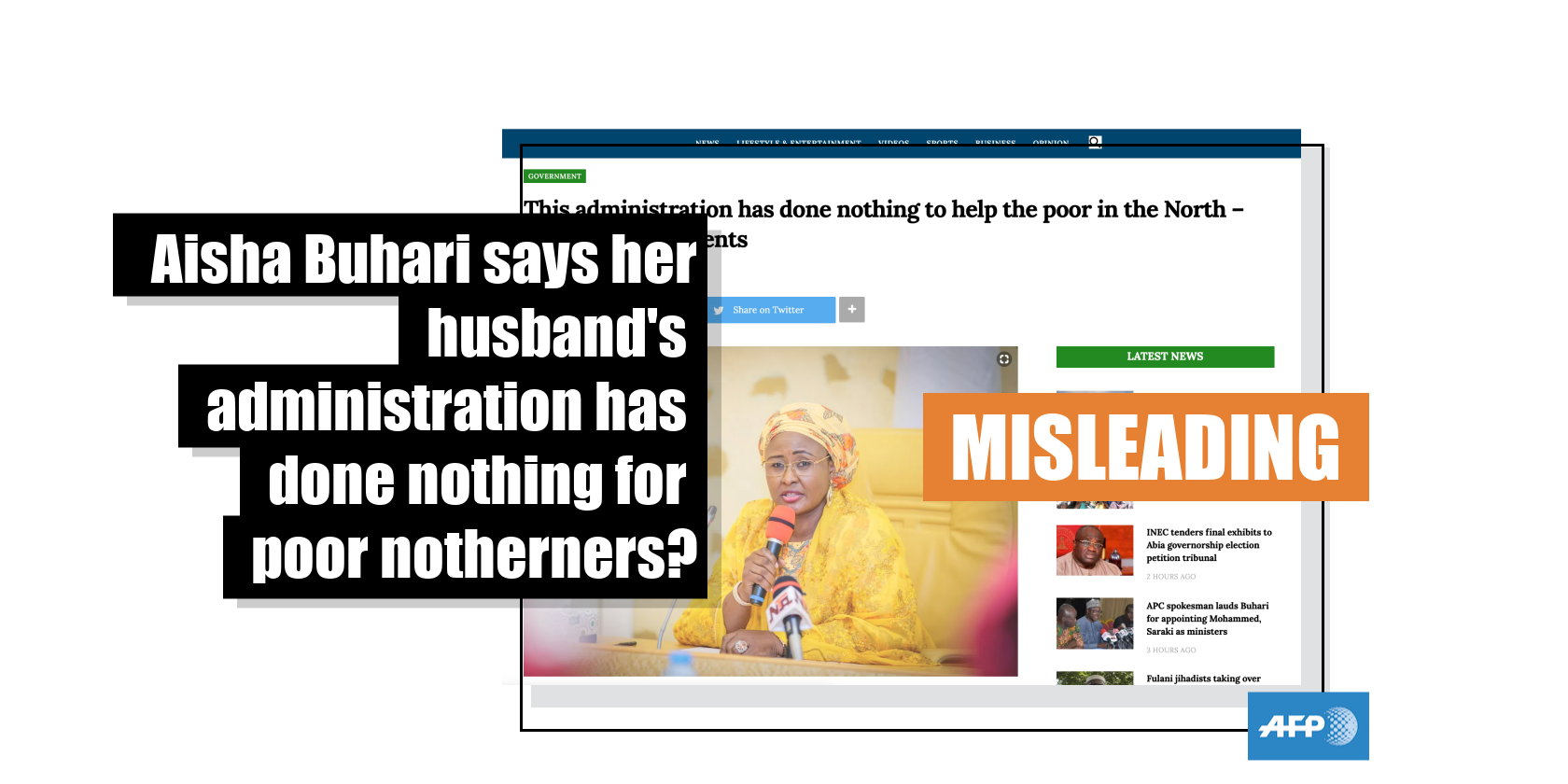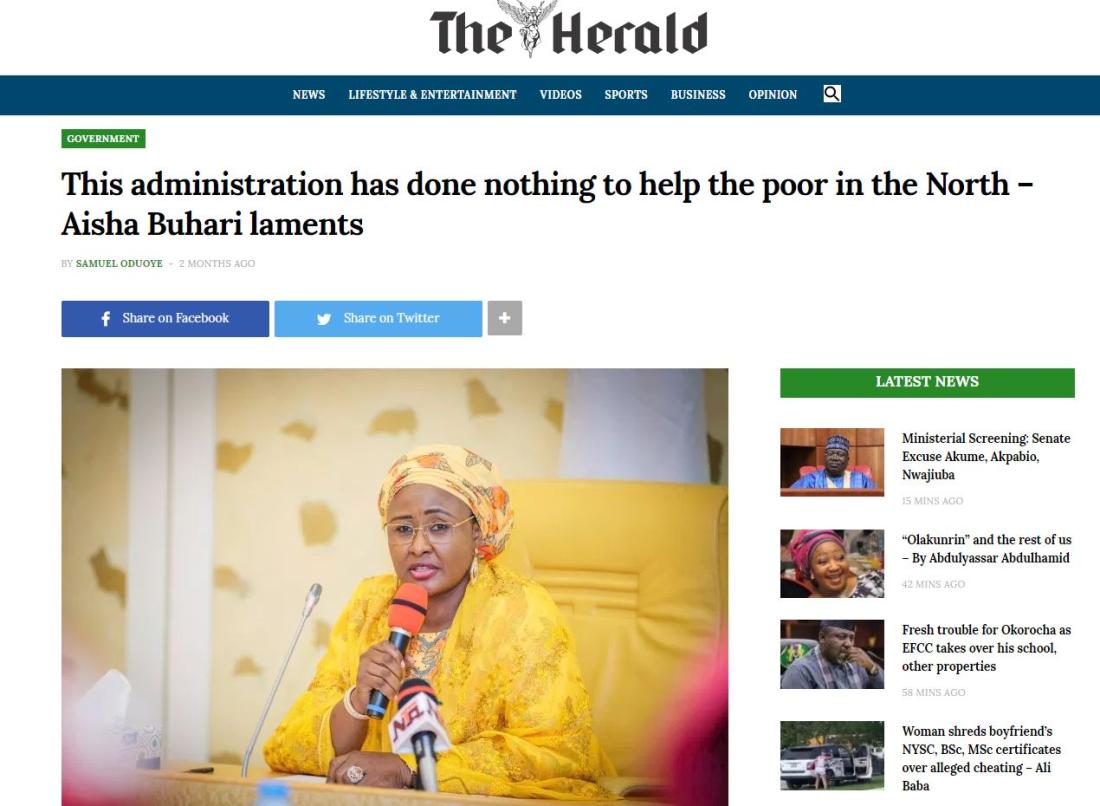
Nigeria’s first lady has criticised her husband’s government, but did not say it has done nothing for the poor in the north
- This article is more than six years old.
- Published on July 24, 2019 at 19:15
- 2 min read
- By AFP Nigeria, Mayowa TIJANI
Online newspaper The Herald claimed in a report -- archived here, and shared nearly 6,000 times on Facebook according to social media analysis tool CrowdTangle -- that the first lady said her husband’s administration had done nothing to help the poor in northern Nigeria.

The headline says: “This administration has done nothing to help the poor in the North – Aisha Buhari laments”.
But while the text of the article quotes an actual speech by Mrs Buhari raising concerns over existing social investment programmes, her words do not support the claim made in the headline.
In a video of her comments, which you can see here, the first lady does indeed complain that the SIPs have had a limited impact in the north, saying that most local governments in her state have not received the monies promised.
“In my own state, one local government benefited from it, that is out of 22 local governments,” she said in the May 2019 speech. (In fact, Adamawa State has 21 local governments.)
“Most of the northern states did not get the money,” she added.
It’s not the first time that Aisha Buhari has been critical of her husband’s administration. In this 2016 BBC interview, she complained about a handful of people who she felt exerted too much influence within her husband’s government.
Nigeria’s social investment programmes
Muhammadu Buhari won the 2015 presidential election on the back of promises to run social investment programmes to get children back to school, create hundreds of thousands of jobs, and get many Nigerians out of poverty.
The office of the vice-president, which oversees the SIPs, claims that the programmes it currently runs represent the largest social welfare scheme in the history of Nigeria.
Vice President Yemi Osinbajo oversees the National Social Investment Programmes (N-SIP), which is made up of the N-Power Programme, a job creation initiative which employs hundreds of thousands of young Nigerians; the Government Enterprise and Empowerment Programme (GEEP) which gives interest-free loans to farmers, traders, and other artisans; the Home Grown School Feeding Programme, which the government says feeds more than 9.5 million children in public schools in 31 states nationwide; and the Conditional Cash Transfer programme, giving funds to the poorest of the poor in Nigeria.
According to official figures, more than 208,000 pupils from 1,198 schools have benefitted from the National Home Grown School Feeding Programme -- a subset of the SIPs -- in the first lady’s state, Adamawa.
Copyright © AFP 2017-2026. Any commercial use of this content requires a subscription. Click here to find out more.
Is there content that you would like AFP to fact-check? Get in touch.
Contact us
